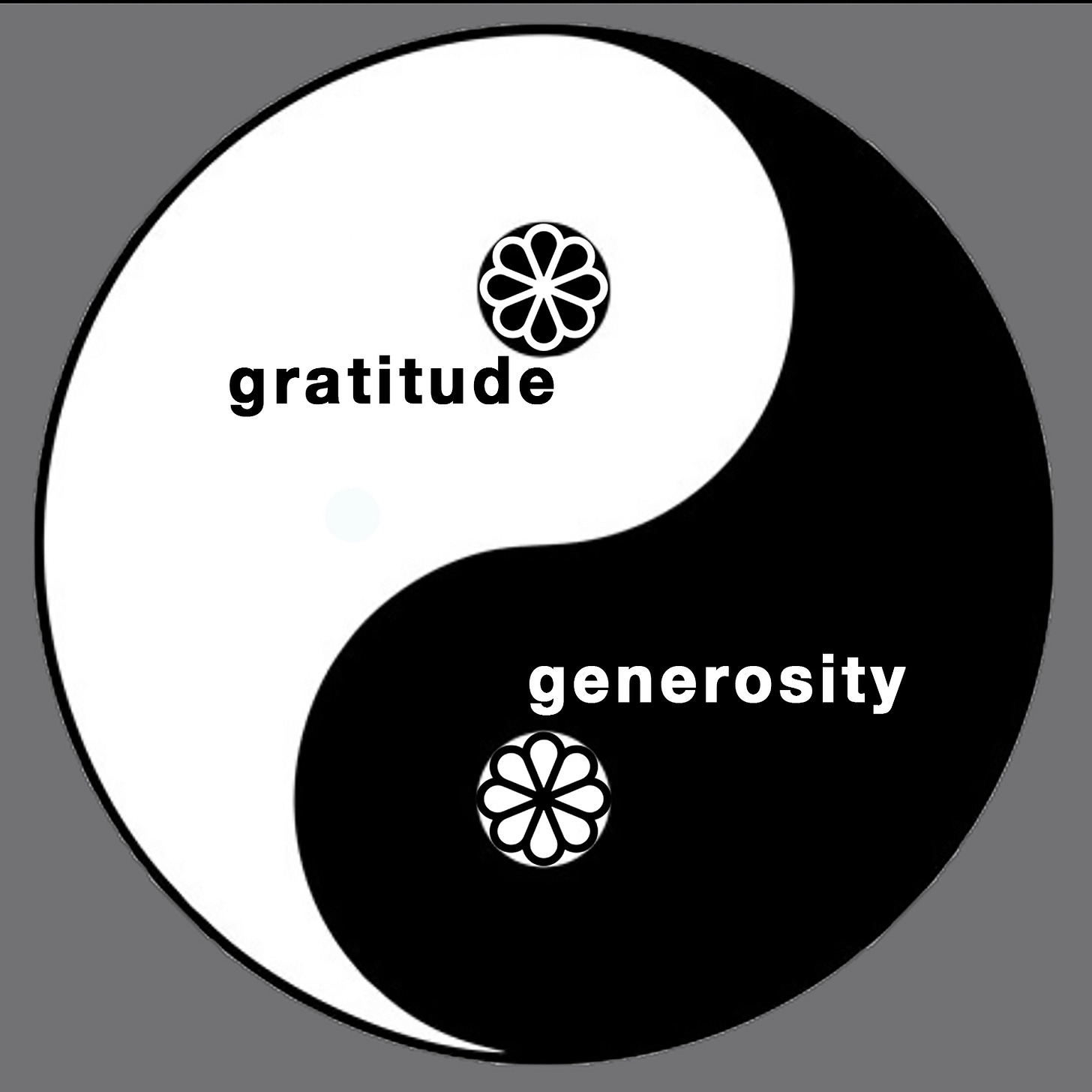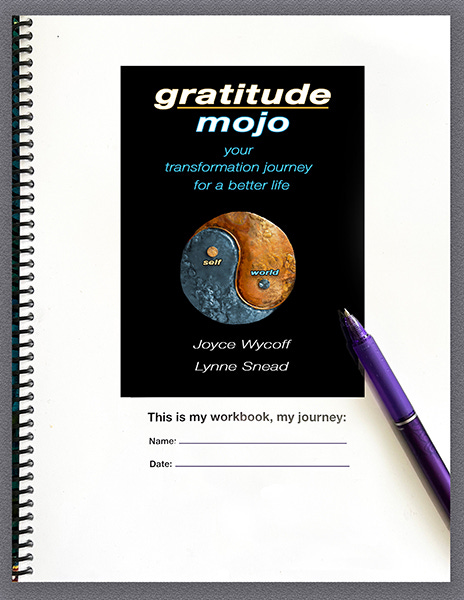Author Sam Horn, who has an amazing way with words, asks, “Are you taking life for granted or are you taking it for gratitude?"
By now, most people have gotten the message that gratitude is a good thing … good for ourselves, good for the world around us. And, like most good things, eventually, we begin to take it for granted. There will always be the smell of coffee when we wake up in the morning; the car will start and take us to work/school/on vacation; the grocery store will always offer us a dozen choices of toothpaste … or so we think.
Unfortunately, in that routine state expectation, gratitude slips away, becomes the background wallpaper of life. And, sometimes, it takes a shock to wake us up … the loss of someone we love, an unexpected health event, or a financial set back. If we’re lucky, these wake up calls happen in a less than traumatic fashion, often in places where we see things we may never see otherwise. I was lucky enough to have one of these moments in the former USSR.
It was 1990, so it was still the USSR even though the cracks in the system were evident. I was there as part of an accelerated learning camp bringing teenagers from the USSR and the USA (including my step-daughter) together for two weeks. The camp was held on a college campus just outside Moscow and we spent the first days touring and meeting our hosts. What I noticed first was that, after we left the beauty of Red Square, the city was truly ugly. Boxy grey concrete apartment buildings dominated the views and everywhere you looked, everything you saw, was crumbling from lack of maintenance.
Grocery stores were empty, with virtually nothing on the shelves or racks, refrigerated meat compartments unplugged, hours-long lines for a loaf of bread, and impromptu swap meets formed along roadsides as people tried to find what was missing in the stores. Car parts were a premium and people routinely removed windshield wipers each night just to make sure they were there the next morning.
Bleak was a word we repeated frequently although the people we met were incredibly kind and generous. From them we learned the art of "gifting," presenting people with small presents on almost every occasion. One of my most memorable moments was when a group of us spent an evening in the tiny living room of one of the instructors. We talked and sang and shared an orange that had been segmented. I felt the true warmth of abundance in the midst of so much absence of everything we considered normal.
After growing up with the constant threat of war from the Soviet Union, it was a shock to experience the strange missing competencies of the country. I felt like I had been misled about the strength of our long time “enemy.” The people we met were just beginning to feel free to talk about their country so I asked one of the instructors if they had hated us the way we were taught to hate them. She was shocked and said, “Oh, no! I was just a little girl and it was a cold winter. You dropped winter coats for us. We loved Americans.”
I wondered at the time if a foreign policy of warm coats might have brought us peace.
One lesson I learned on that trip was the power of generosity, not the donations-to-charity type of generosity (although that’s important), but the everyday gifting of tiny treasures … an orange … a shared evening of song and conversation … a winter coat. It took many more years to realize that generosity is built on gratitude. When we’re grateful for the abundance we have (even when it is greatly diminished), we are naturally more generous … more willing to share our abundance, regardless of how small.
"Doing a kindness produces the single most reliable momentary increase in well-being of any exercise we have tested. -- Martin Seligman, Founder and Director of the Positive Psychology Center, University of Pennsylvania
So, while gratitude and generosity may seem like a paradox of competing virtues … being grateful for what I have (which can feel like a holding onto what is mine) versus being generous with what I have (letting go of what I have and, therefore, having less to be grateful for) ... they wind up being a virtuous cycle. We can be grateful for our abundance which lets us generously share with others and also grateful for the connection that comes from sharing with our neighbors wherever they are on our home planet.
And, perhaps, that virtuous cycle could become the foundation for more peace planet.
Yesterday I saw a story on Twitter about a guy who offered to mow the law for a woman who had just lost her husband. It was a simple act, but one that made that woman feel less alone, more cared for. There must be thousands of stories like that in the world. We need to hear more of them. Can you share one?
Thank you for reading gratitude mojo. We love your “hearts” and please feel free to share this post if you think any of your friends and family would like it.
And if you would like to see other Gratitude Mojo posts, click here:
In good times and challenging ones, practicing gratitude helps us recognize the good things in our lives and build resilience for the challenges that come our way. Gratitude journaling is one of the best ways to better understand yourself and deepen your practice of gratitude.
Any journal will do … however, here are two we are biased toward:
Gratitude Miracles, a 52-week journal filled with inspiring quotes and the science behind 13 amazing benefits of gratitude. Available from amazon.com:
Or, Gratitude Mojo, a 26-week, workbook format, which comes to you free with your annual paid subscription … including one copy for a friend because having a Gratitude Buddy makes the journey better.
We want to help everyone develop a deeper practice of gratitude, therefore, all posts are always free. … However, it is paid subscriptions that help support this work.






What a beautiful post, Joyce. Your Russian story reminded me of when I interviewed a returning veteran. Innolect was bidding on a project to support female veterans returning from the Middle East. What I found most startling was her story about going to her closet each morning or to the grocery store. She couldn't cope with all the overwhelming number of choices, having spent two years knowing exactly what she would wear and the rations she would eat each and every day. I've never looked at grocery store shelves in quite the same way. Her story and my gratitude stay with me.
I found this interesting